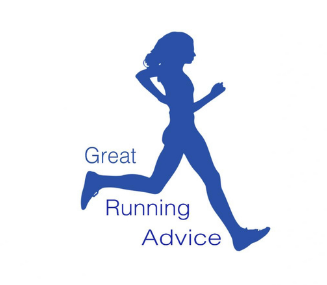Since the covid pandemic began, running has become a popular exercise. During covid 19, most people were working from home and stuck in the house as all the gyms and sports clubs were closed. So running became one of the exercises people could do; they just put on their running shoes, and away they went. They were able to breathe fresh air, and it helped clear their head. As a result of this, many runners run every day. Some are running 8 miles a day due to just going out each day for a run.
Who Is Running 8 Miles A Day?
Many runners are running 8 miles a day. These runners
- Runners who want to get their weekly mileage up – runners trying to increase their mileage, but this may not be the best way to do this
- those who are trying to lose weight – running 8 miles a day helps runners to lose weight as they are burning 800 to 1,100 calories each day
- experienced runners – these runners have no issue running at least 8 miles a day. They will run these runs at various paces.
Benefits Of Running 8 Miles A day
There are many benefits to running 8 miles a day. These are:
- Improved fitness – running every day will improve our fitness provided we change the pace that we run on different days
- lose weight – helps runners to lose weight or keep weight off as running 8 miles a day will burn about 1000 calories a day
- mental benefits – running every day will improve our mental health as it helps anxiety, relieves stress, and helps clear the head
- helps to enhance the quality of sleep – running daily helps us sleep better every night
- improved cardiovascular health – running daily enhances our cardiovascular health as it helps support healthy blood flow, blood pressure, and cholesterol.
Drawbacks Of Running 8 Miles A Day
Even though there are many benefits of running 8 miles a day, there are also many drawbacks, as follows:
- Increased risk of injury – the more days we run without any rest day, the higher the risk of injury is. For example, suppose we run 8 miles daily, 7 days a week. This is classed as high mileage, which increases the risk of leg injuries.
- Our training will plateau – if we continuously run the same mileage at the same pace over the same route every day, our training will plateau, and we will stop benefiting from this running. This can become discouraging due to the lack of progress.
- Suffer Burnout – when a runner runs 8 miles every day, they may suffer from burnout as the body is not getting a chance to recover between runs.
How Can I Improve My 8-Mile Daily Run?
There are a few things that I can do to improve my 8-mile daily run.
- Change the route regularly – changing the route regularly will take the routine out of running. Also, by changing the surface that we run on. If we continuously run on concrete, this

- Find a running buddy – instead of always running on my own, it is great to find a running buddy, as running with a running buddy has many benefits.
- Maybe add a rest day – it will do any runner no harm to add a rest day once a week. For example, if you aim to do 56 miles a week, you can vary the other 6 days’ sessions to make up 56 miles.
- Change the time of the day that you run – at different times of the day, we will have greater energy, have eaten different foods, have mood swings, have temperature variations, and have better or worse air quality. By running at different times of the day, we become more adaptable as we will have gotten used to running in various conditions.
- Vary the run speed by doing different types of running sessions – when running, we should never do all our training at one speed. Instead, we should incorporate a speed workout, a tempo session, hill repeats, and an easy run.
-
- Speed workout – a speed workout or an interval workout is excellent to help us to increase speed. An example of a speed workout is: warm up by jogging for 10 minutes, doing dynamic exercises, and running very hard for the next 10 * 2 mins with a 1-minute recovery and cool down by jogging for 10 minutes, followed by static exercises.
- Tempo session – a tempo session where we run for 10 minutes, easy to warm up and cool down, and the mileage in between we run at a hard pace equivalent to our 10km pace or slightly slower. The aim is to hold this pace the same for each mile.
- Hill repeats – this is self-explanatory. It is where we run up a hill of maybe 200m and jog back down. We run up the same hill about 10 times. Doing a proper warmup before it and a cool down afterward is essential.
- Easy run – this is a run where we do all out mileage at an easy pace. When running at this pace, we should be able to converse while we are.
-
How Do I Train To Run 8 Miles?
We need to train correctly if we want to run 8 miles without stopping. 8 miles is the equivalent of 12.87 km.
When we are building mileage, we need to do the following
- In the beginning, try walking and running, alternating between one and the other
- over time; we need to try to reduce the amount of time we spend walking,
- try and run 3 times a week
- make sure to take a proper rest day from running between sessions.
- Always listen to your body; there might be a day that you should be running, but your body feels lethargic. It is okay to put the session off to a different day.
- Try and find a running buddy. This is essential as they will encourage us and helps us to achieve our goals.
- Don’t concentrate on the pace when trying to build mileage. Instead, we should be training at an easy conversational pace.
- Always ensure that we wear proper running shoes that support our feet, whether pronating, supinating or neutral.
- Keeping the body adequately hydrated when running is essential. If the body lacks water, we will be very lethargic when we run.
How Long Does It Take To Run 8 Miles?
The time to run 8 miles will vary substantially from runner to runner. Some will be new runners, some experienced, and some at an elite level.
The average time among all runners for running 8 miles is 78 minutes. This time varies dependent on sex, experience, fitness level, weather, and terrain.
The average time for beginner runners to run 8 miles is 91 minutes. A lot of beginners may not be able to run all 8 miles. They will adopt the approach of walk-running.
An experienced runner can run 8 miles in around 55 minutes, whereas an elite runner will run in under 35 minutes.
Can I Run A Half Marathon If I Can Run 8 Miles?
A half marathon is not an easy distance to run for most people. They need to follow a training plan in the 12 to 16 weeks before the half to build up the mileage. But some runners ask: can I run a half marathon if I can run 8 miles? The answer to this is that yes, you can. With the right mindset, anything is possible. I am not saying that it will be easy if the longest you have run is 8 miles, but it is doable. Once you slow right down to an effortless pace, you should be able to complete the half marathon.
When Should I Run Further Than 8 Miles Before The Half Marathon?
All runners should run more than 8 miles before the half marathon as it should make race day more manageable.
If we aim for a specific time, we must run as nearly 13 miles as possible. If we are trying to run a fast PB, we may need to run as far as 15 miles in training.
Running further than 8 miles before the half marathon is better if we are novice runners; this is our first time doing a half marathon. However, if we are unfit or overweight, it is essential to try and get to at least 11 or even 12 miles before the half marathon. This will help us believe in ourselves and hopefully prevent us from getting injured by upping our mileage suddenly.
If we are self-doubters and don’t think we will finish the half, getting as close to 13 miles in training as possible is essential to help eliminate the fear.
8 Mile Runs FAQ
Many runners have questions about 8-mile runs. I will try to answer a few of the most popular questions below.
Can I Run A Marathon If I Can Run 8 Miles?
No, I believe you can’t run a whole marathon if you can only run 8 miles. You might be able to finish, but you need to plan on doing a lot of walking during the marathon. To run a whole marathon, I think we have to run a minimum of 15 or 16 miles; even then, we will still struggle to complete the rest of the marathon running.
Is Being Able To Run 8 Miles Good?
It is excellent if you can run 8 miles without stopping. Many runners never get past the 5k or 10k distance as they are happy doing this. If you can 8 miles, you will have no problem entering a 10-mile race. Running 8 miles is good for our health and mental health. It also helps if we are trying to lose weight, provided we are running this distance a few times a week.
Are 8 Miles Considered A Long Run?
Depending on the runner, 8 miles may be considered short or long.
If you are in marathon training or regularly compete in marathons, an 8-mile run will be short. If you are running for fun or only running 5k or 10k, an 8-mile run is classed as a long run for these runners.
What Is A Good Time For 8 Miles?
A good time for 8 miles is anything under 1 hour. What is a good time for one runner is slow for another runner. A good time depends on sex, fitness level, experience, terrain, and weather.
A good time for 8 miles is the time that each runner is happy with.
Final Thoughts
We have now examined running 8 miles. Essentially we have looked at who can run 8 miles daily and the benefits and drawbacks of 8 miles, and we discussed how we could change up our daily 8-mile run. We have examined 8 miles adequate distance to have only run before the half marathon and when we need to run further than 8 miles. Lastly, I have answered questions that runners frequently ask about 8-mile runs.

